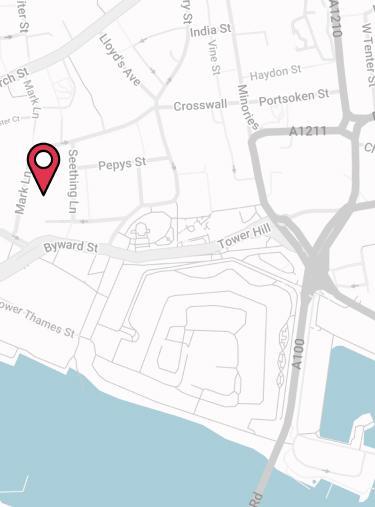
Working as a contractor and considering Private Health Insurance? You’re in the right place. Despite the nature of being a contractor, you’re still eligible for a variety of protection products, including health cover.
In this guide, you’ll find out all you need to know about Contractor Health Insurance. What does it cover? How much does it cost? Do you need it? Find out here.
What Is Contractor Health Insurance?
Contractor Health Insurance covers the costs of private medical treatment for acute conditions. It allows you to bypass NHS waiting lists and receive treatment when you need it most.
As a contractor who doesn’t receive the same employment benefits as a regular member of staff, extra protection is often needed. Contractor Health Insurance can help reduce how long you’re off work sick or injured and get you back on your feet as soon as possible.
You might be wondering if it’s any different to a standard Private Medical Insurance policy. Well, it’s exactly the same, aside from how it can be taxed. We’ll explain more on that later.
Why Health Insurance Important For Contractors?
Contractors don’t receive the same benefits as a person hired for a company under an employment contract. This includes sick pay.
Since you’re not entitled to any kind of sick pay, taking time off work if you have a persistent health problem isn’t always going to be viable. And if you’re not able to work, you’re not able to generate an income.
This is why Health Insurance for contractors is so important. It can provide access to the medical treatment you need at a faster rate than the NHS. And while it doesn’t cover any loss of income (you’ll need Income Protection for that) it can still offer you peace of mind that should you need any medical care, you can get it sorted quickly.

With a Contractor Health Insurance policy tucked under your belt, you’ll have peace of mind that you can recover as quickly as possible and avoid taking too much time off work.
Alex Weir
Independent Protection Specialist
How Does Contractor Health Insurance Work?
Contractor Health Insurance works in the same way as a standard Private Medical Insurance policy. The only difference being that it’s more aimed specifically at contractors and can be taxed in a different way.
You can pay for your Contractor Health Insurance from your own bank account. Or, depending on how your business is set up, you may be able to pay for it through your business. We’ll explain the tax side of things in more detail later on.
Either way, once the policy is active, you’ll be able to make a claim if you need treatment as long as it’s covered by your policy.
Does It Replace The NHS?
No, all private health policies are designed to supplement the NHS, rather than replace it. When you have private health cover, you’ll still use the NHS for certain health situations, anyway. But the level of which depends on how much cover you’ve chosen for your policy.
You’ll still visit your local GP, but the process of receiving treatment will depend on whether you add outpatient cover to your policy.
Contractor Health Insurance With No Outpatient Cover
If you have a basic health policy that doesn’t include outpatient cover, your GP will refer you to the NHS for all tests, consultations, and diagnostics. After this, you’ll be referred to a private facility for your treatment.

Contractor Health Insurance With Outpatient Cover
Meanwhile, if you pay a higher premium for outpatient cover, your route to private healthcare is different. Rather than visiting your GP and being referred to the NHS for diagnostic tests, you’ll be referred straight to a private facility for care. This route is typically a faster process than waiting for NHS treatment.

SPECIALIST TIP 🤓
While you’ll need a GP referral, this can now be done via remote GP services, which most UK health insurers offer to policyholders.
No matter what you do for work or the level of cover you pick, not all medical conditions are covered by a private health policy. For accidents and emergencies, for example, you’d still rely on the NHS for healthcare.
Chronic Vs Acute Conditions
We’ve said that your Contractor Private Health Insurance only covers acute conditions, but what is that? In the medical world, there are two types of health conditions you could develop. These are:
- Chronic conditions
These stick with you for life. They won’t go away with time or medical attention. Doctors can only manage them, not cure them. For example, diabetes and asthma - Acute conditions
These pass with time and medical treatment. Cataracts needing surgery or joint pain requiring a joint replacement are both acute conditions, for instance.
This means if you have a chronic health issue, all ongoing management and medication is available on the NHS. There are no loopholes for getting chronic conditions treated privately, health insurers simply don’t cover them.
This is why we say that Contractor Health Insurance works alongside the NHS and doesn’t replace it.
Health Insurance Client Stories
What Does Contractor Health Insurance Cover?
As mentioned, Contractor Health Insurance will only cover acute conditions. But what your policy actually includes will depend on the options you pick when setting up your policy.
As standard, all policies cover specific conditions and treatments. However, you’ll need to pay extra for some types of care and certain health issues.
Inpatient Or Outpatient Treatment
All medical treatment, whether it’s private or NHS, is split into two categories: Inpatient/Day-Patient and Outpatient.
All private health insurers cover inpatient procedures as standard. But when choosing your Contractor Health Insurance policy, you’ll have the option to add Outpatient cover. Here’s the difference between the two:
- Inpatient / Day-Patient Care
Any treatment which requires a hospital bed, either overnight (inpatient) or for the day (day-patient). This includes surgeries - Outpatient Care
Any treatment you have without needing a hospital bed. Diagnostic tests and scans, as well as physiotherapy, for example, are normally carried out as an outpatient.
ADVISER TIP 🤓
While outpatient treatment does cost more, we tend to recommend some level of this on your health policy. It can considerably speed up the diagnosis of conditions compared to waiting for the NHS.
Your Contractor Health Insurance will cover:
- Extensive cancer treatments (we’ll talk about this next)
- Diagnostic testing, such as MRI scans and blood tests
- Private hospital access and nursing care
- Surgery as inpatient and day-patient.
Depending on the level of cover you’d choose, you may also get:
- Outpatient treatment
- Mental health support
- Complementary therapies
- Physiotherapy.
Cancer Care
One of the most valuable aspects of any private health policy is Cancer Care. With Contractor Health Insurance, you can access drugs, treatments and therapies which aren’t available on the NHS due to cost. This may include new experimental medicine.
All major UK health insurers now offer some level of cancer cover as standard. This typically includes:
- Chemotherapy & radiotherapy
- Biological therapies
- Cancer surgery / reconstruction
- Cash towards prosthetics / wigs you need as a result of cancer treatment.
SPECIALIST TIP 🤓
Alongside the above, you may also be able to add extra cover such as Dental and Optical Care to your policy as an optional add-on.
What Doesn’t Health Insurance For Contractors Cover?
Like all types of insurance, there are specific things which are excluded from your policy. It doesn’t matter if you work for yourself or not, these are not included:
- Pre-existing medical conditions
- Emergency care
- Issues related to alcohol / substance abuse
- Pregnancy / fertility treatment
- Cosmetic treatment which isn’t medically necessary
- HIV / AIDS
- Kidney dialysis
- Self-inflicted injuries, such as those sustained through dangerous sports / hobbies.
Do I Need Contractor Health Insurance?
We’re very fortunate in the UK to have access to the NHS. While it provides free healthcare, the NHS is under unprecedented pressure.
Through a lack of funding and staff shortages, the service is feeling the strain more than ever. Waiting lists are getting longer and longer, as evidenced in the following statistics.
- At the end of January 2023, 7.2 million patients were on NHS waiting lists in England
- Approximately 3 million of which have been waiting more than 18 weeks for treatment.
As a contractor without any sick pay entitlement, you may be particularly vulnerable to long waiting times. If you fall ill or suffer an injury, you’ll want to receive treatment as soon as possible. But waiting times can make this difficult. Plus, you’re likely to experience financial struggles as a result of taking time off work.
Working as an independent contractor, how would your working life be affected if you had to wait over 18 weeks for care? You should consider Private Medical Insurance if you:
- Want fast access to private healthcare services
- Prefer flexibility over where and how you receive treatment
- Want peace of mind that you can get the care you need as quick as possible
- Want to skip long NHS waiting lists
- Can afford monthly health insurance premiums.

From our experience advising contractors, many opt for Private Medical Insurance to limit disruption to their income.
By ensuring quick diagnosis and treatment, it cuts the time you have to spend away from work and gets you back on your feet as soon as possible.
Sophie Guiver
Independent Protection Specialist
How Much Does Contractor Health Insurance Cost?
The cost of Private Health Insurance as a contractor depends on a variety of factors. Some of which are in your control, such as whether you smoke or not, but others aren’t, like your age.
To give you a rough idea of how these factors can affect the cost of a policy, we’ve provided some examples below.
The Provider
The cost of your policy will vary from provider to provider. Each health insurer on the UK market charges different premiums. This is because each one has its own appetite for risk and offers a variety of services and benefits.
To show you how the prices can differ, we’ve calculated the following based on:
- A 35-year-old contractor
- £250 excess
- Non-smoker.
Different Providers | |
|---|---|

| 
|
£83.70 | £87.05 |
The Level Of Outpatient Cover
As we’ve said, it costs more to include outpatient cover on your policy. However, how much more it costs will depend on the level of outpatient care you choose.
A mid-range policy may provide up to £1,000 of outpatient treatment. While a comprehensive policy will provide you with full cover.
Using the same factors as above, we’ve got some examples of how different levels of outpatient cover can impact the cost.
Level Of Outpatient Cover | Type Of Policy | Outpatient Cover | Cost |
|---|---|---|
Basic | £0 | £46.18 |
Mid-Range | £1,000 | £66.77 |
Comprehensive | Full Cover | £83.70 |
The Excess Amount
The excess amount refers to how much you’re willing to pay upfront before your health policy kicks in. The higher your excess, the lower your premiums. You’ll pay this excess per claim or per policy year. Most of the time, you pay an excess once per policy year.
Excesses start at £0 and can go all the way up to £5,000. Aviva offers one of the highest excesses on the market, at £5,000. While Bupa’s highest is just £500.
Affordability here is key. While a higher excess does reduce your monthly premiums, it’s no use if you make a claim and can’t afford to pay the excess amount.
We’ve calculated the costs of health cover with varying excess amounts to give you an example of how much you may pay. This is based on the same 35-year-old from above.
Level Of Excess | Excess Amount | Monthly Premium |
|---|---|
£250 | £83.70 |
£500 | £71.55 |
£1,000 | £62.08 |
The Policyholder’s Age
How old you are has a significant impact on your monthly premiums. As we get older, the risk of developing health conditions or suffering an injury is much higher. To reflect this risk, insurers charge depending on your age.
Using the same factors as above, here are some examples from insurer AXA of how age impacts the monthly price.
35 | 45 | 55 |
|---|---|---|
£56.63 | £73.42 | £102.93 |
Smoker Status
Due to the detrimental health effects of a smoking habit, insurers often charge more for policyholders who smoke compared to non-smokers.
We’ve provided an example from insurer AXA to show you the cost difference between smokers and non-smokers. This is based on a 35-year-old self-employed worker, wanting comprehensive cover and a £250 excess.
Smoker Vs Non-Smoker | |
|---|---|
🚬 | 🚭 |
£71.22 | £56.63 |
Treatment Facilities
Where you receive private care can impact the cost of your Health Insurance. It’s worth remembering that just because you have a policy in place, you’re not entitled to private care in all private facilities.
When you take out Health Insurance as a contractor, you’ll choose a hospital network. This lists where you can have treatment. Health policies typically have several ‘tiers’ of private facilities. The best private hospitals in the country, such as those in Central London, are the priciest to receive private medical care in.
The more comprehensive your network and the pricier the facilities, the more you’ll pay for cover. So if you’re not too bothered about being treated in any private hospital, rather than the top facilities, you can limit your network and reduce the cost. These are often limited to local private facilities and private wings of NHS hospitals.
Policyholder’s Location
Your insurer will take your location into account when setting up your Contractor Health Insurance. If you live in an area, like Central London, which has some of the top private hospitals, you’ll pay more.
GOOD TO KNOW 🤓
There are some insurers, such as Freedom, which don’t base premiums on where you live. This could be more suitable if you live in London, as unlike others, they won’t rate premiums on your postcode.
6 Week Wait Option
You can reduce the price of your Contractor Health Insurance with the 6 week NHS wait option. Your policy will pay out only if the NHS waiting list for the inpatient care you need is longer than 6 weeks. Your policy will also kick in if the NHS doesn’t provide the procedure you require.
If the wait is less than 6 weeks, you’ll visit an NHS facility for treatment. This only applies to inpatient care, however. Outpatient care is unaffected as it’s an optional add-on—you’ll always get private treatment with this add on.
IMPORTANT NOTICE 🧐
Due to the current length of NHS waiting times, some insurers such as AXA aren’t offering this option. The market changes regularly, so if you’re unsure, give us a call on 02074425880 or email help@drewberry.co.uk to find out your options.
How Is Contractor Health Insurance Taxed?
Due to the nature of working as a contractor, you’re known as self-employed. This has the potential to impact how Health Insurance is taxed, depending on how you operate.
If you’re a contractor working through your own limited company, your business can pay for your Health Insurance. Having your limited company pay for premiums tends to be more tax efficient than paying for it via your own personal account.
HMRC views Private Medical Insurance as an allowable expense if premiums are run through a limited company. Here you can also benefit from paying less corporation tax as you can write premiums off against the tax bill.
When you buy a personal policy, you pay from income (salary and dividend payments) HMRC has already taxed, meaning you save money on tax.
To pay for a £1,200 annual premium from dividend income, taxed at the higher rate (33.75%), you’d need to receive a dividend payment of £1,778.
As dividends are paid after corporation tax, you’d need to generate £2,195 within the company before you could pay yourself the dividends used to buy Health Insurance personally.
IMPORTANT NOTICE 🧐
Speak to your accountants to ensure you’re aware of the tax implications of your limited company paying your insurance premiums.
Working Through An Umbrella Company
Another way to work as a contractor is through an umbrella company. This is a third party which acts as an intermediary between you (the contractor) and your employer. It’s an alternative to setting up a limited company.
Umbrella companies are responsible for admin, such as receiving your earnings and paying tax and National Insurance before passing on your net pay. While some regular companies offer staff insurance as a benefit, whether an umbrella company can pay for health cover is complicated. Here, you’re best off discussing with your accountant and umbrella company.
The expenses you can claim as an employee of an umbrella company are more restricted than those working via a limited one. So it pays to make sure you’re on the right side of HMRC’s rules in this area.
Is It A P11D Benefit?
HMRC considers companies paying for a policy for its staff as a P11D / Benefit in Kind. This includes a limited company paying for Contractor Health Insurance. You’ll have to pay extra income tax on the value of the benefit you receive.
The limited company must pay employers’ National Insurance at 15% on the benefit. So even if you pay for your premiums via a limited company, it’s still liable for Class 1A National Insurance.
Common Private Health Insurance Questions
Is private medical care better than the NHS?
There’s no right or wrong answer here as private healthcare isn’t necessarily better than the NHS, despite what people think.
Any private care you receive works in tandem with the NHS to provide comprehensive health treatment. So much so that many healthcare professionals work in both NHS facilities and private hospitals.
When you take out Contractor Health Insurance, it provides private medical treatment when you need it most. A policy enables you to skip long NHS waiting times and get the care you need faster. It also means you can pick and choose when and where you receive treatment.
But the NHS will always be necessary. We’ve already talked about some of the exclusions on private health policies. All of which will still require NHS care. Chronic conditions, pregnancy, and emergency treatment, for example. You’ll visit an NHS facility for these.
What are the benefits of Private Health Insurance for contractors?
The benefits of buying a Health Insurance policy are plentiful. It can offer:
- Access to private hospital rooms with en-suites
- More flexible visiting hours for family members
- Speedy treatment
- Virtual GP services
- Choice over when, where, and who treats you
- A range of extra free benefits, such as gym discounts and helplines
- Specialist drugs and treatments.
Which medical underwriting is right for me?
When buying Contractor Health Insurance, the insurer will underwrite you on either a Moratorium or Full Medical Basis. Which one is right for you depends on your medical history—not just on the conditions you’ve had, but also how severe those conditions were.
- Moratorium Underwriting (MORI)
Moratorium is the most common form of underwriting. Your insurer will assess your medical history and exclude any health condition you’ve had advice, medication or treatment for in the previous 5 years. Most providers underwrite under a 2-year rolling basis. Here they might reconsider cover for a previous condition as long as you haven’t sought any treatment or advice for it in those 2 years.
- Full Medical Underwriting (FMU)
Full Medical Underwriting means you’ll fill in a form declaring any pre-existing conditions when you apply for cover. Your insurer will then go on to exclude these conditions. Although you’ll know what you’re covered for from the start, there’s often very little wiggle room to remove exclusions. For example, if you broke a bone 20 years ago and received care for it, but you suffer the same fracture again as an adult, the cost of treatment isn’t covered. It does, however, provide a faster payout as you don’t need to provide medical proof, unlike Moratorium Underwriting. Your insurer already knows your health history.
- Moratorium Underwriting (MORI)
When should I review my Contractor Health Insurance premiums?
Just like other insurance products, your Health Insurance policy will renew every year. The insurer will write to you on an annual basis, informing you of any changes.
We recommend you regularly review your policies to ensure you’re still getting the best cover for the best price. You may find your monthly premiums increase as a result of rising nationwide medical costs.
If you start to notice the cost of your insurance is becoming too much, one of our specialist advisers will be happy to help. We’ll compare the whole UK market on your behalf and secure you a competitively priced policy.
We can also assist in switching providers if you’re unhappy with your existing policy. Our team will help make sure you get the right underwriting terms and continue receiving the same level of cover. This is referred to as a Continued Personal Medical Exclusions (CPME) basis.
Compare The Best UK Health Insurance Companies For Contractors
There are five major Contractor Health Insurance providers in the UK market, each with their own unique products and benefits:
Given each insurer has their own underwriting, the most appropriate and cost effective provider depends on your age and location. That’s why it’s so important to compare quotes from all the leading UK insurers when doing your research.
Additional Benefits
When comparing insurers, it’s also important to look at the additional benefits they offer with their core cover. These can add real value to your policy.
The best Private Medical Insurance policies now often include:
- Remote GP services
- Health checks
- Physiotherapy
- Stress & mental health support
- Second medical opinions
- Rewards & discounts.
Health Insurance Product Reviews
Get Specialist Advice For Contractor Health Insurance
Many independent contractors recognise that Health Insurance is a valuable benefit. It enables them to get back to work as soon as possible. But finding the best policy can be overwhelming. With so many cover levels and policy options to consider, why not ask a specialist for help?
At Drewberry, we have years of experience helping contractors get the right health cover. We know the UK’s major health insurers like the back of our hands. So we’re able to help you get the best Health Insurance.
If you’d like our support when setting up your Contractor Health Insurance, please don’t hesitate to drop us a call on 02074425880. Alternatively, you can email us at help@drewberry.co.uk.
Why Speak to Us?
When it comes to protecting your health, you deserve first-class service. Here’s why you should talk to us:
- There’s no fee for our service
- We’re an award-winning independent insurance broker, working with the leading UK insurers
- You’ll speak to a dedicated specialist from start to finish
- 4100 and growing independent client reviews rating us at 4.92 / 5
- Claims support when you need it most
- Authorised and regulated by the Financial Conduct Authority. Find us on the financial services register.
Contact Us
125-135 Preston Road
Brighton
BN1 6AF
Cookies
Drewberry™ uses cookies to offer you the best experience online. By continuing to use our website you agree to the use of cookies including for ad personalization.
If you would like to know more about cookies and how to manage them please view our privacy & cookie policy.














![Bupa Health Insurance [Review] Image](/_next/image?url=https%3A%2F%2Fmedia.drewberry.co.uk%2FProject-Penguin-Provider-logosBUPA.png&w=480&q=75&dpl=2070)


